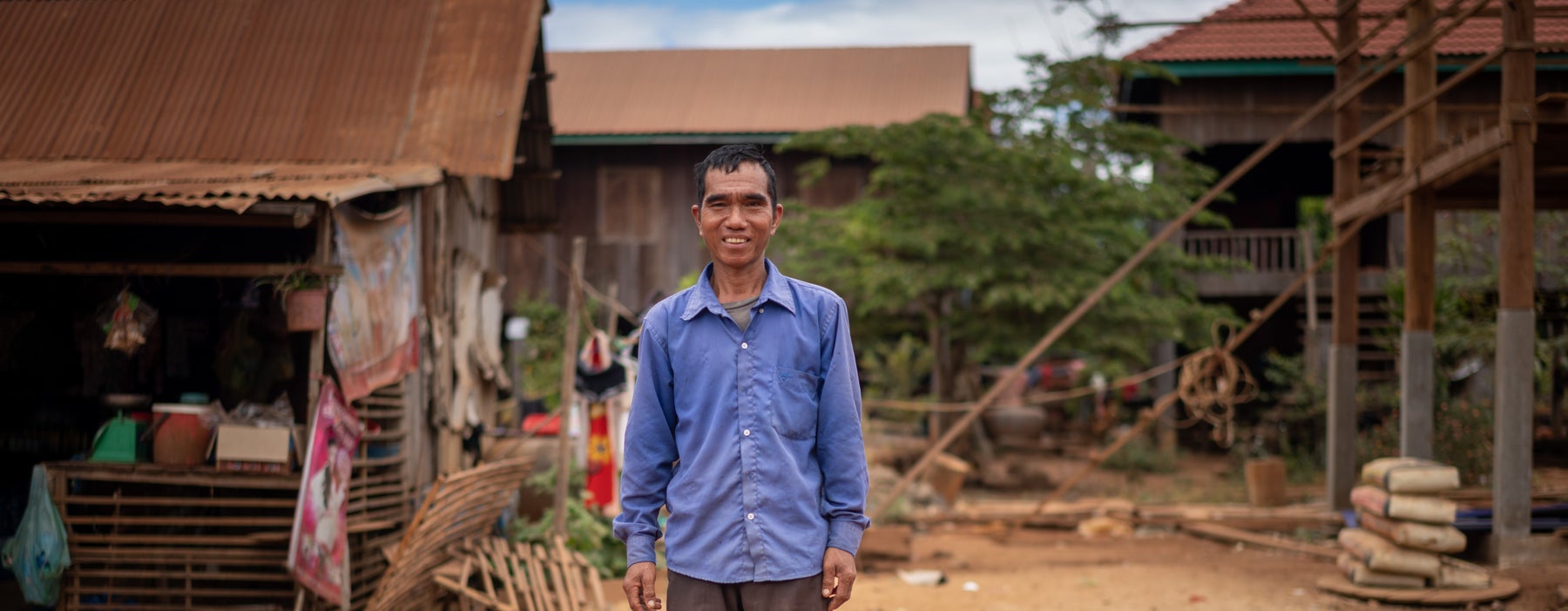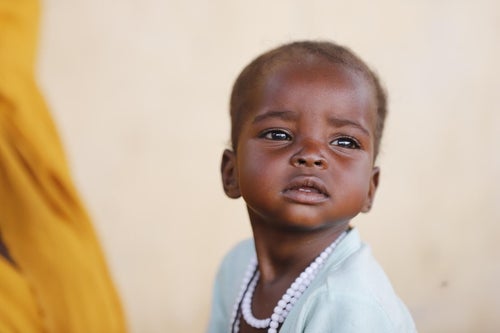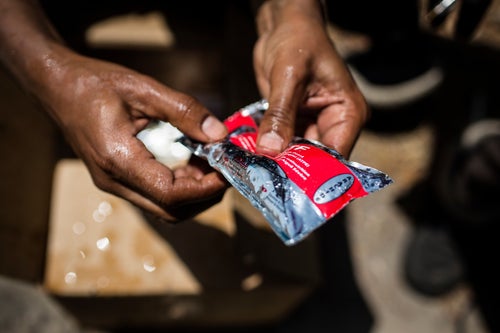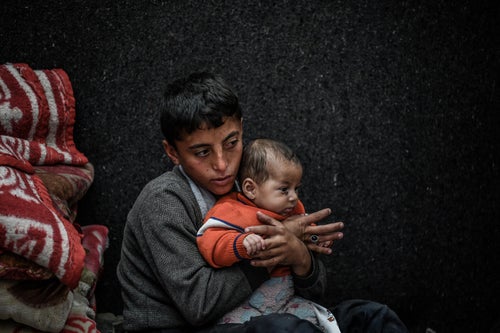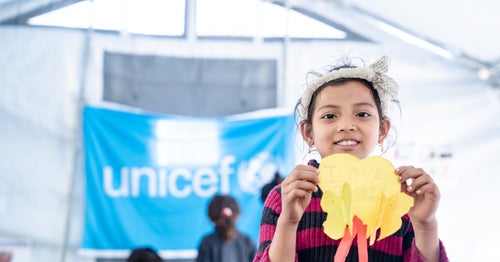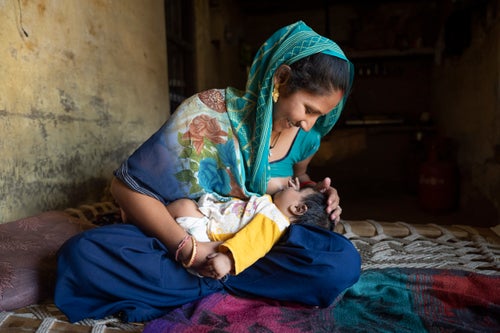“I remember that a lot of children used to die, especially the littlest ones under five,” says Mr. Hen, a health care worker serving his community for more than 20 years.
“But last year, there was not a single death here, and that is a tremendous change.”
Mr. Hen is a health care volunteer in the remote community of Ratanakiri Province, in the northeast of Cambodia. He travels a complex road that all humanitarians, medical professionals, and global communities travel to solve childhood malnutrition.
In Cambodia, a country UNICEF Australia has directly supported for seven years, this is an issue children and families are facing every day.
Thirty-two per cent of children under five in Cambodia are stunted, meaning their growth and development is impaired and they have a low height-for-age, an indication of undernutrition.
In Mr. Hen’s community, many families struggle to afford food and access transport. Thanks to people like you, we have made incredible progress and are working to reach every child with health care in remote areas.
“There are a thousand families, so that's a lot of children we can help,” says Mr. Hen.
“Eating well, drinking well, and living well, that's what we are trying to teach them."
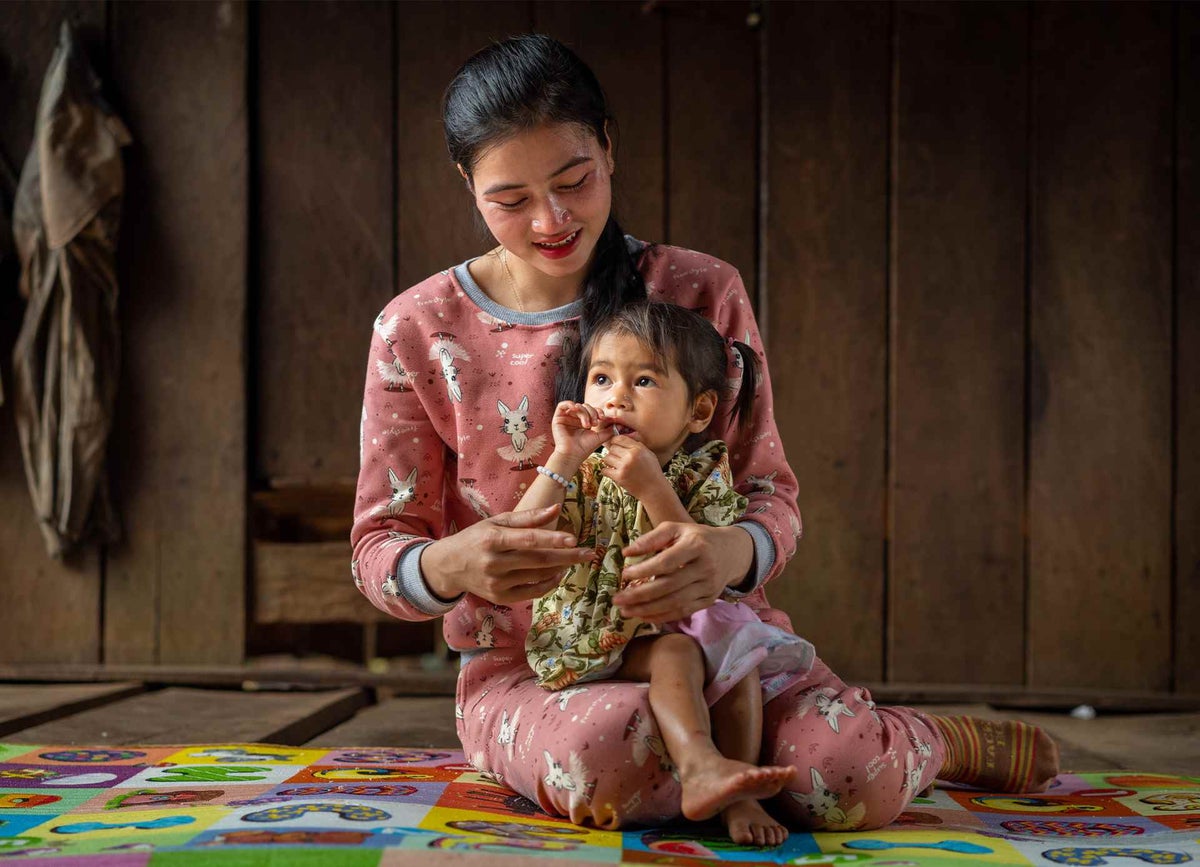
"I just want my daughter to grow up strong."
On a recent trip to their village, our teams spoke to another UNICEF-supported health care worker, Mr. Lonh about the impact he has seen throughout his experience as a medical practitioner.
On the day we met him, Mr. Lonh treated only one patient for malnutrition, Solina, a two-year-old girl. Solina’s young mother was understandably emotional when she spoke to our teams after her daughter's malnutrition screening.
“I knew she was a bit small, and I was worried about why she wasn’t growing more... when they said she had severe acute malnutrition. I was a bit shocked,” says Solina’s mum. “But I am glad they told me. That means I know what to do now.”
Mr. Lonh comforted Solina’s mother, took her through vital nutritional and health information, and provided her with Nurtix, a ready-to-use, therapeutic food to treat malnourished children, developed with support from UNICEF. The supplement provides vital nutrients to support Solina’s full recovery. Health workers will now continue to monitor Solina in follow-up appointments.
Stories like these drive our passion to end child malnutrition for good. You can help parents to nourish their children and see them thrive by donating today.
Mr. Lonh explains that preventing malnutrition is sometimes as simple as educating parents that their children cannot eat the same diet as them.
“People don’t really understand how nutrition works, especially for children. They don’t know all the different micronutrients and vitamins a young child needs.”
“Often, they will just try and give a young child the exact same food as an adult, not knowing that they might need more vegetables, for example.”
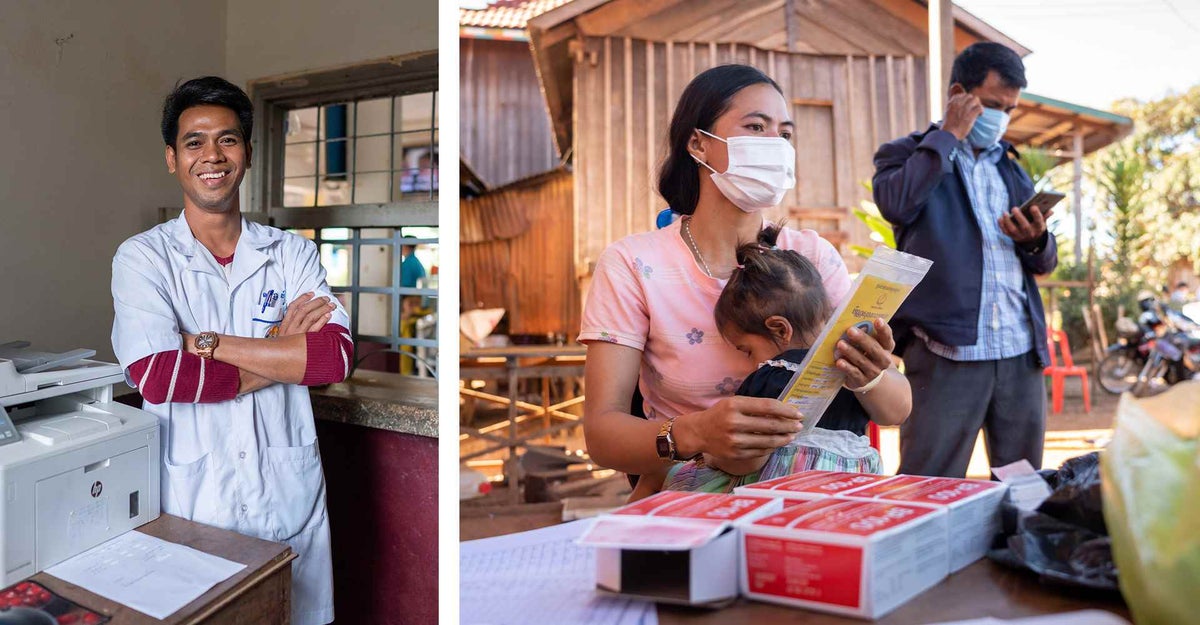
Preventing malnutrition in young children requires a holistic approach that includes improving its diagnosis, access to healthcare and nutritious food. It’s not just a job for health workers, but pre-school teachers, community members, and parents.
Our teams on the ground have found that providing information to families on early nutrition practices, can lead to an improved and sustainable nutritional intake for children.
Thanks to people like you, UNICEF has delivered:
- nutrition programs across 97 different communes in Cambodia in 2020,
- provided treatment to over 5,700 severely malnourished children,
- and reached more than 22,700 parents and caregivers through our parenting education program.
Creating sustainable change for every child in need
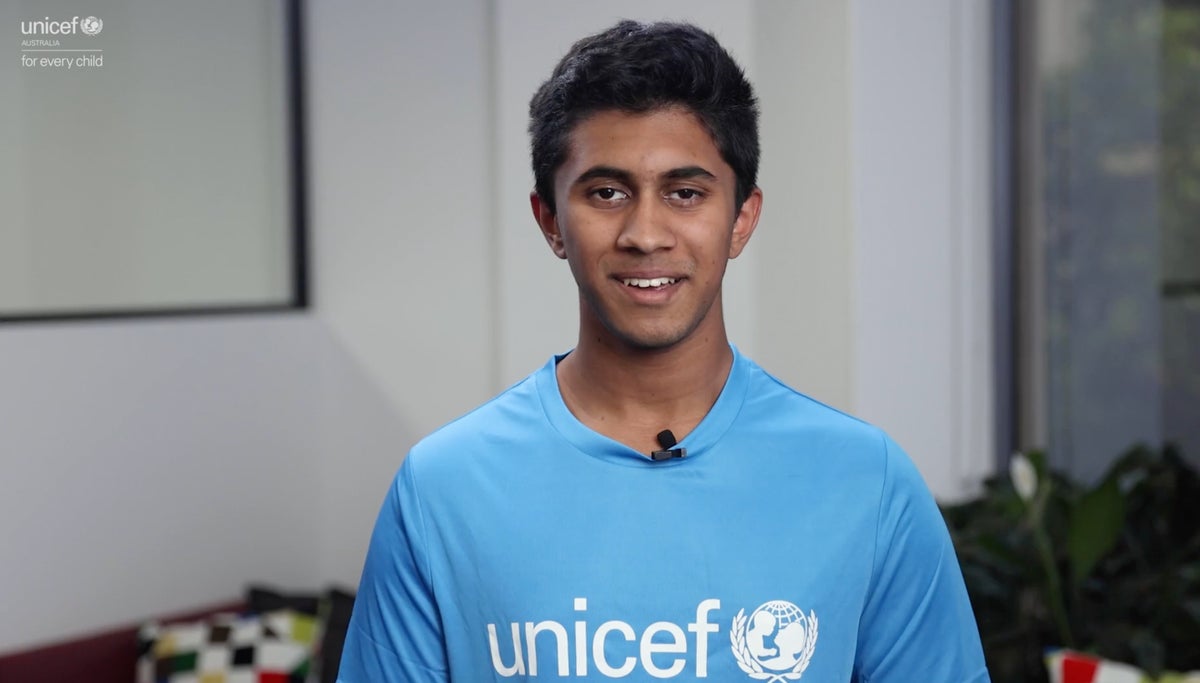
Creating sustainable change for every child in need
Empowering communities through education is essential to not only protect children in the short term, but to create sustainable change.
This year, we are expanding a training program for key community members, like Mr. Hen and Mr. Lonh, to continue their essential work in these rural communities, as well as investing in visual aids and discussion guides for parents and caregivers.
We won’t stop working to protect every child. and we look towards a future where every child is nourished, healthy and happy.
This program is supported by generous Australian donors and Australian Government's Australian NGO Cooperation Program.
Help make a difference in the lives of little children like Solina by donating today.
Related articles
Stay up-to-date on UNICEF's work in Australia and around the world



